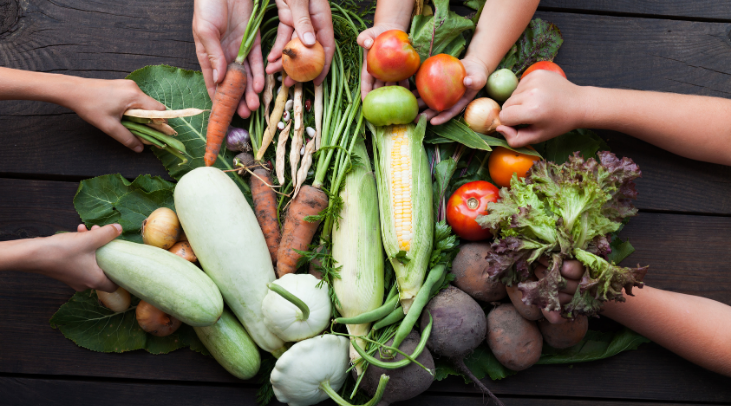In a world where environmental concerns are becoming increasingly urgent, the agricultural sector has a pivotal role to play in driving sustainability. For us, eco-friendly farming practices are not just a commitment to the planet but a cornerstone of our export strategy. This blog explores the sustainable farming techniques we use to enhance produce quality while minimizing environmental impact.
1. Organic Sustainable Farming Practices

We prioritize organic farming methods to reduce the use of synthetic chemicals and pesticides. By enriching the soil with natural fertilizers like compost and manure, we ensure healthier crops and a reduced ecological footprint.
Organic sustainable farming practices emphasize environmental preservation, biodiversity, and the health of ecosystems while producing nutritious, chemical-free food. These practices prioritize the use of natural fertilizers like compost and manure, crop rotation to maintain soil fertility, and biological pest control to reduce chemical dependency.
Benefits:
- Improved soil health and fertility.
- Reduction in groundwater contamination.
- Better compliance with international organic certification standards.
2. Water Conservation Techniques

Water scarcity is a pressing issue in agriculture. To combat this, we implement advanced irrigation methods like drip irrigation and rainwater harvesting to ensure efficient water use.
Water conservation techniques are vital for sustaining this essential resource and ensuring its availability for future generations. These methods include rainwater harvesting, which captures and stores rain for agricultural and domestic use, and drip irrigation systems that deliver water directly to plant roots, minimizing waste.
Mulching helps retain soil moisture by reducing evaporation, while contour farming and terracing prevent runoff in hilly areas. Greywater recycling repurposes wastewater for irrigation and other non-potable uses.
How It Works:
- Drip irrigation delivers water directly to plant roots, minimizing waste.
- Rainwater harvesting systems collect and store water for use during dry seasons.
3. Integrated Pest Management (IPM)

We employ IPM techniques that combine biological, cultural, and mechanical pest control methods, reducing the reliance on harmful chemicals.
Integrated Pest Management (IPM) is an environmentally responsible approach to controlling pests by combining multiple strategies to minimize harm to crops, humans, and the ecosystem. It emphasizes prevention through methods like crop rotation, resistant crop varieties, and maintaining healthy soil to reduce pest habitats. Biological control plays a crucial role, using natural predators, parasites, and microorganisms to manage pest populations.
Examples:
- Using natural predators like ladybugs to control aphid populations.
- Planting pest-repelling companion crops alongside main produce.
4. Renewable Energy Adoption

To lower our carbon footprint, we utilize renewable energy sources like solar-powered water pumps and energy-efficient cold storage facilities.
Renewable energy adoption is a pivotal step toward combating climate change and achieving sustainable development. It involves harnessing inexhaustible resources such as solar, wind, hydropower, geothermal, and biomass to meet energy demands while reducing dependence on fossil fuels. Solar panels and wind turbines provide clean electricity, while bioenergy offers eco-friendly alternatives for heating and transportation.
Impact: These measures not only reduce greenhouse gas emissions but also lower operational costs, making farming more sustainable.
5. Crop Rotation and Diversity

By rotating crops and cultivating diverse produce, we enhance soil fertility, prevent pest infestations, and reduce the need for synthetic inputs.
Crop rotation and diversity are essential agricultural practices that enhance soil health, reduce pest infestations, and improve overall farm productivity. By alternating crops in a planned sequence, farmers prevent nutrient depletion and promote a balanced soil ecosystem.
Conclusion
Sustainable farming is no longer optional; it’s a necessity for the future of farming and exports. Our eco-friendly practices not only align with global environmental goals but also improve the quality of our produce, making it more appealing to international buyers.
Incorporating a variety of crops supports biodiversity, improves resilience to climate variability, and reduces the risk of total crop failure. These practices are fundamental to sustainable agriculture, ensuring long-term productivity and environmental health.
Join us in creating a greener tomorrow through sustainable farming with freshhly picked!

